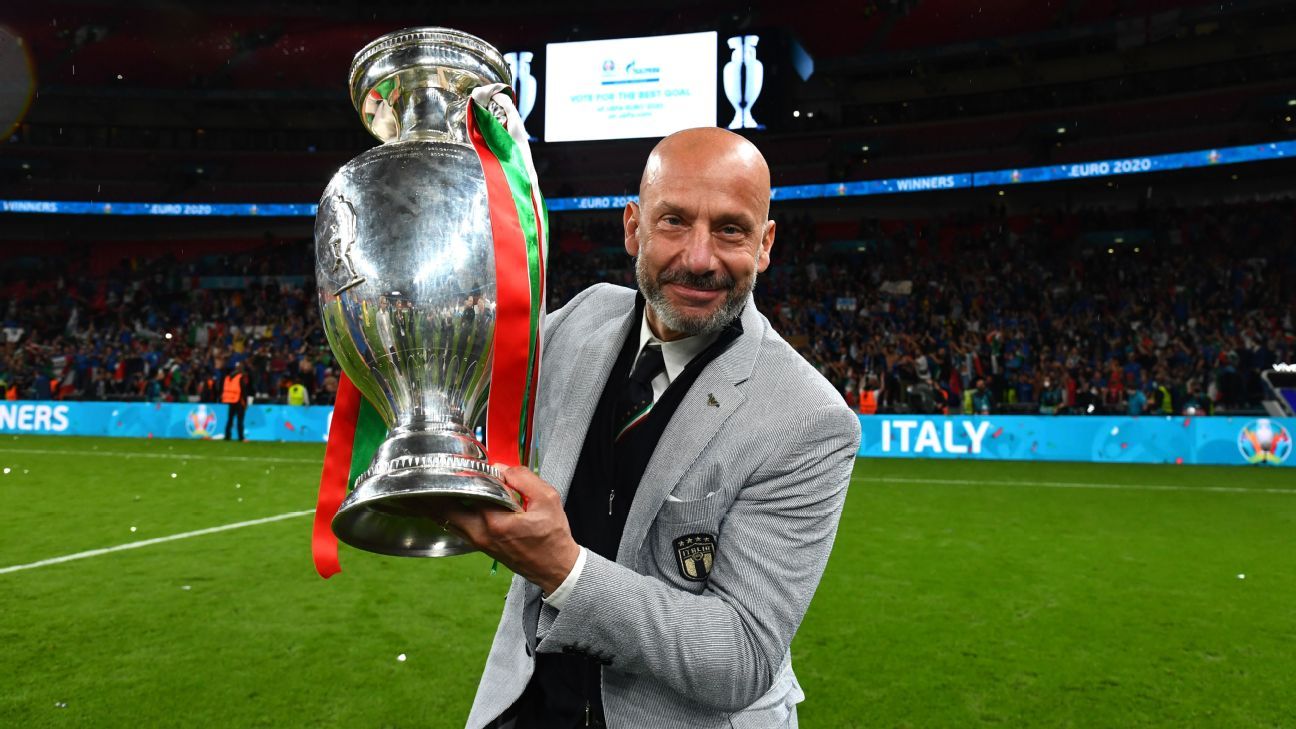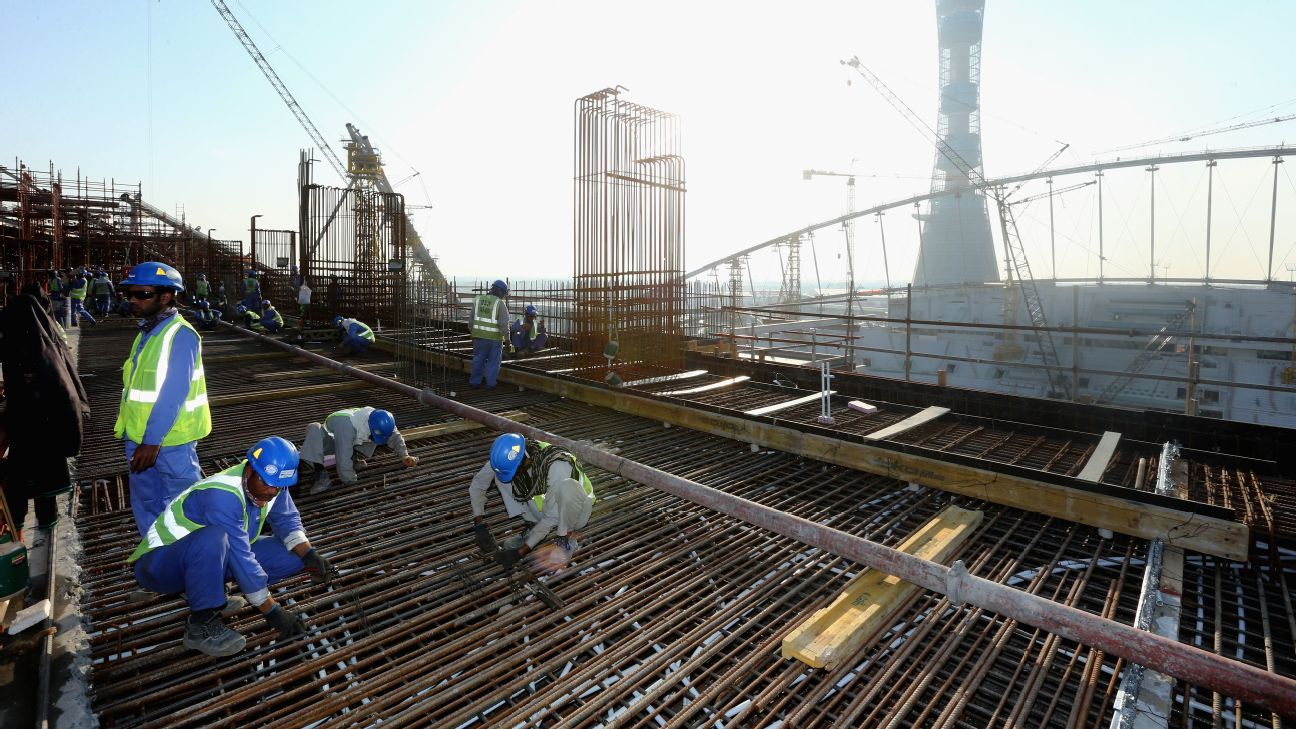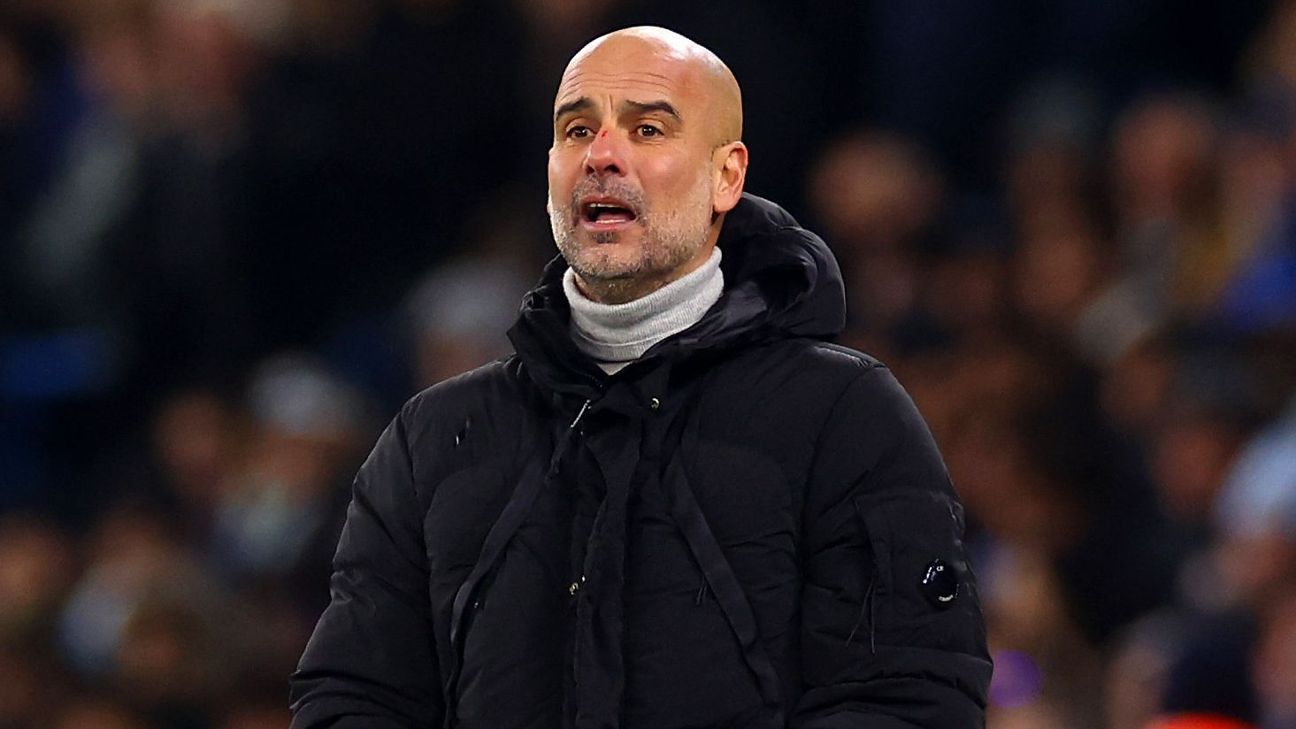
Gianluca Vialli made me choke up. And to think, this wasn't my first rodeo.
Between World Cup finals, Champions League finals and Europa League finals, playoff finals, domestic cup finals, European Championship and Copa America finals ... I'm well north of 60 in a professional capacity.
When you have the privilege of doing what I do for a living, you try to stay professional as best you can, leaving emotion to one side. It's not always easy, not when you love this game and the people around it, not when you bear witness to the emotional transport of hundreds of millions of people around the world, not when you understand that it is one of the common threads of humanity.
So, yeah, there have been times when I've become emotional postgame. But never before the event. Until Sunday night at Wembley, that is.
- Euro 2020: The latest News, features, video
- Stream ESPN FC Daily on ESPN+ (U.S. only)
- Don't have ESPN? Get instant access
It's customary, usually an hour-and-a-half before kickoff, for players and coaches to walk around the pitch, get a sense of their surroundings, take in the moment. Most of the Italian team and coaches did just that prior to the Euro 2020 final against England.
One man stayed out there on his own, standing upright in the middle of the pitch, letting his eyes wander over what he saw. It was someone who lives minutes away from me in London and a guy I've known for 25 years. It was Luca. I took a photo and tweeted it out, Vialli looking at once tiny and immense on the green Wembley lawn.
I haven't asked him what went through his head in those minutes that felt like hours, possibly because I was transfixed and welling up from the Wembley press box. I won't ask him either. Let it be a private moment, though plenty have speculated.
Maybe it was the fact that Italy and England, the two countries he has called home for almost an even split of his life were facing off in a European final.
Maybe it was the fact that Roberto Mancini, his closest friend in football and his "goal twin" from Sampdoria days going back 37 years, had asked him in November 2019 to join the national team and together they had once again reached the final hurdle. (Officially, the job title was "head of delegation"; unofficially it was somewhere between consigliere, road trip buddy and -- the reformed extrovert Vialli balancing out the functioning introvert Mancini -- one man's yin to another's yang).
Maybe it was the fact that, the last time he and Mancini were together dressed in the same colors at Wembley, they were playing the 1992 European Cup final against Johan Cruyff's "Dream Team" of a Barcelona side. The colors and clothes were different: white jerseys, with Samp's traditional "circle stripes," back then; chalk-grey suits today. It was the "old" Wembley, before the arch and before the rebuild, but the spot and the weight of the air he was breathing was the same. (The outcome would be different; 29 years after being beaten, Vialli and Mancini would emerge as victors.)
Maybe it was the happy times at Wembley. The FA Cup, League Cup and Community Shield he won under the old Twin Towers when he was managing Chelsea, more than 20 years ago.
Maybe it was the fact that being back in football, nearly two decades since his last official position, reminded him what he had missed. Two decades in which he raised a family, wrote two books, enjoyed a successful career as a TV pundit and completed his formal.
For the last five of those years, Vialli was accompanied by what he calls "an unwelcome travel companion": cancer.
Yeah, that's what he calls it. A "travel companion" stalking him on his journey through life.
"I don't see this as a battle," he writes in his book, "Goals: Inspirational stories to help tackle life's challenges," which I helped curate and translate. "I am not a warrior. I am not fighting cancer: it's too strong an enemy and I would not stand a chance. I am a man who is on a journey and cancer has joined me on that journey... my goal is to keep walking, keep moving until he's had enough and leaves me alone."
That journey has seen Vialli take on bouts of chemotherapy that ravaged his body, turning his chiseled athlete's frame into skin and bones (and heart: that never went away). It saw him confront death, the end of existence (or, at least, this existence) and the effect it would have on his family and loved ones.
But it also taught him the power of positivity, of routine and of switching off, letting the adrenaline of a hyper-achiever give way to the peace of someone willing to stop and take pleasure in what he calls "the little details of everyday life."
It is also why he accepted the call from Mancini and the Italian FA: "If I'm thinking about work, it's easier to block the irrational thoughts out of my mind," he wrote. I might add, the terrifying ones -- the end of one's existence -- too.
Vialli was careful to respect his role in the Italian delegation. He was not an assistant coach, he was not about to let his profile overshadow or interfere with anybody else. He was there for Mancini and the players when needed.
Some reported that he was the only one Mancini would take to on the matchday mornings, part of an old superstitious routine. Others said that Vialli was an essential part of another superstition that Mancini and the team insisted on maintaining throughout the tournament: being left behind when the team bus set off as if "forgotten" and only welcomed aboard a few feet later.
Thing is, it's hard to keep a low profile when you're Gianluca Vialli and you've touched so many lives.
"He will hate me for saying this, but I don't care," Alessandro Florenzi said after the final. "Everybody needs to know this. We have among us an example that teaches us how to live, in any moment, in any situation. And I'm talking about Gianluca Vialli, For us, he's special. Without him, and without Mancini and the other coaches, this victory would mean nothing. He is a living example. I know he'll get angry, but I just had to say it."
Me, I know exactly how Florenzi feels. Vialli might get annoyed with me too when he reads this. But it had to be said. It takes a lot to choke up someone who has watched as much football as I have before a ball is even kicked.















 Phone: (800) 737. 6040
Phone: (800) 737. 6040 Fax: (800) 825 5558
Fax: (800) 825 5558 Website:
Website:  Email:
Email: 






